Hyundai i30 vs SEAT Leon - Differences and prices compared
Compare performance (140 HP vs 272 HP), boot space and price (24000 £ vs 24500 £) at a glance. Find out which car is the better choice for you – Hyundai i30 or SEAT Leon?
Costs and Efficiency:
Price and efficiency are often the first things buyers look at. Here it becomes clear which model has the long-term edge – whether at the pump, the plug, or in purchase price.
Hyundai i30 has a hardly perceptible advantage in terms of price – it starts at 24000 £, while the SEAT Leon costs 24500 £. That’s a price difference of around 463 £.
Fuel consumption also shows a difference: SEAT Leon manages with 1.20 L and is therefore clearly more efficient than the Hyundai i30 with 5.70 L. The difference is about 4.50 L per 100 km.
Engine and Performance:
Power, torque and acceleration say a lot about how a car feels on the road. This is where you see which model delivers more driving dynamics.
When it comes to engine power, the SEAT Leon has a clearly edge – offering 272 HP compared to 140 HP. That’s roughly 132 HP more horsepower.
In acceleration from 0 to 100 km/h, the SEAT Leon is distinct quicker – completing the sprint in 7.70 s, while the Hyundai i30 takes 9.60 s. That’s about 1.90 s faster.
In terms of top speed, the SEAT Leon performs to a small extent better – reaching 220 km/h, while the Hyundai i30 tops out at 197 km/h. The difference is around 23 km/h.
There’s also a difference in torque: SEAT Leon pulls evident stronger with 360 Nm compared to 253 Nm. That’s about 107 Nm difference.
Space and Everyday Use:
Beyond pure performance, interior space and usability matter most in daily life. This is where you see which car is more practical and versatile.
Both vehicles offer seating for 5 people.
In curb weight, Hyundai i30 is hardly perceptible lighter – 1291 kg compared to 1344 kg. The difference is around 53 kg.
In terms of boot space, the Hyundai i30 offers slight more room – 395 L compared to 380 L. That’s a difference of about 15 L.
Maximum load volume is the same – both hold up to 1301 L.
When it comes to payload, SEAT Leon hardly perceptible takes the win – 521 kg compared to 509 kg. That’s a difference of about 12 kg.
Who comes out on top?
Overall, the SEAT Leon shows itself to be wins the duel decisively and secures the title of DriveDuel Champion.
It convinces with the more balanced overall package and proves to be the more versatile choice for everyday use.
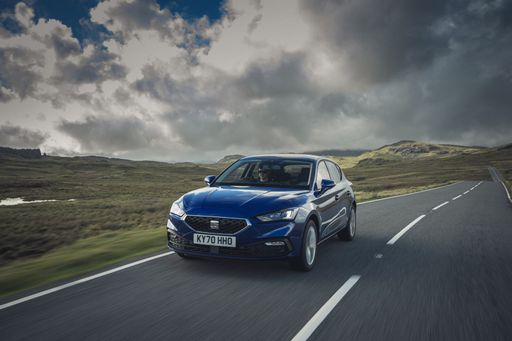
SEAT Leon
Costs and Consumption
View detailed analysis
Engine and Performance
View detailed analysis
Dimensions and Body
View detailed analysis
Hyundai i30
The Hyundai i30 proves that sensible can also be stylish, offering a confident driving character wrapped in neat, modern design. It serves up a roomy, well-equipped cabin and composed ride that make everyday motoring feel like a clever purchase rather than a compromise.
details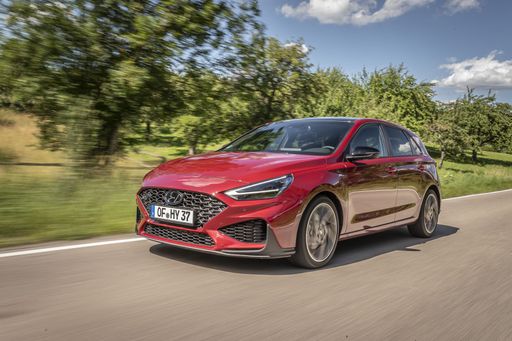
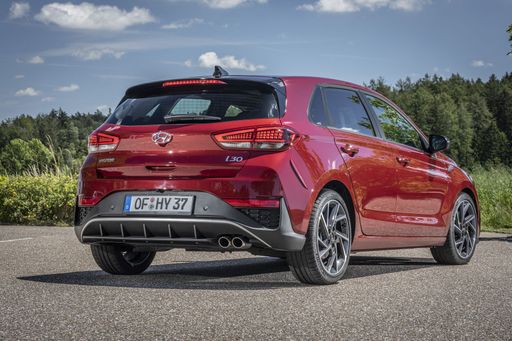
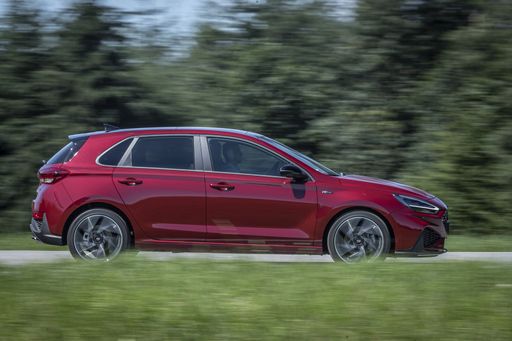
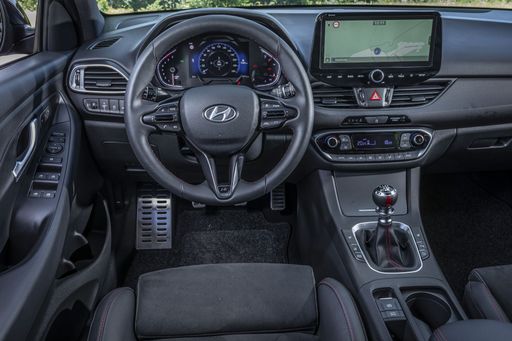
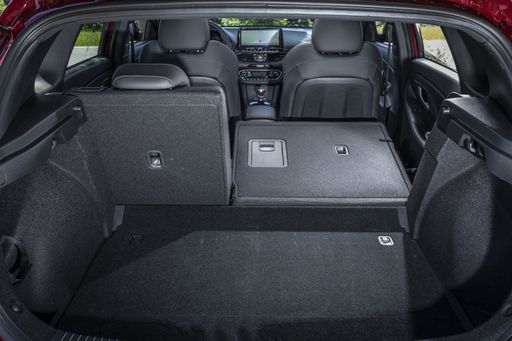
SEAT Leon
SEAT Leon pairs sharp, modern styling with a cabin that's sensible and slightly sporty, making it an appealing choice for buyers who want flair without fuss. It drives with eager composure and offers a neat balance of comfort and agility, so you get everyday usability with a wink of fun.
details
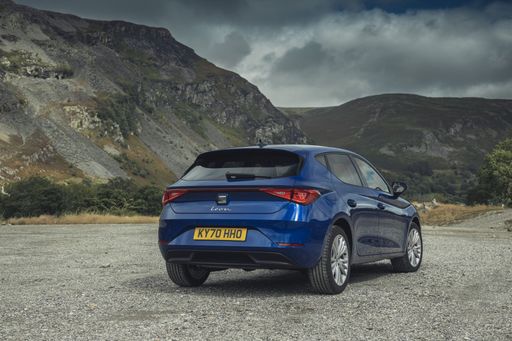
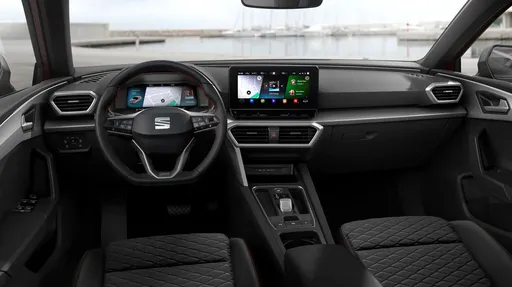
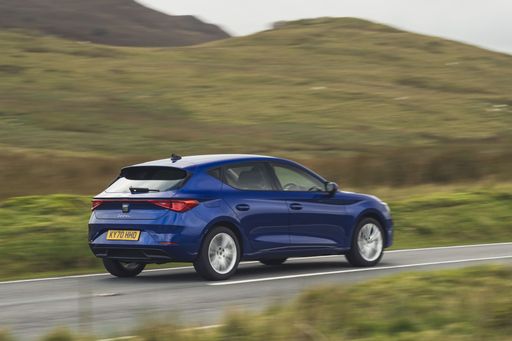

|

|
|
|
|
Costs and Consumption |
|
|---|---|
|
Price
24000 - 29300 £
|
Price
24500 - 36400 £
|
|
Consumption L/100km
5.7 - 6 L
|
Consumption L/100km
1.2 - 5.5 L
|
|
Consumption kWh/100km
-
|
Consumption kWh/100km
-
|
|
Electric Range
-
|
Electric Range
133 km
|
|
Battery Capacity
-
|
Battery Capacity
19.70 kWh
|
|
co2
130 - 136 g/km
|
co2
27 - 126 g/km
|
|
Fuel tank capacity
50 L
|
Fuel tank capacity
40 - 45 L
|
Dimensions and Body |
|
|---|---|
|
Body Type
Hatchback
|
Body Type
Hatchback
|
|
Seats
5
|
Seats
5
|
|
Doors
5
|
Doors
5
|
|
Curb weight
1291 - 1407 kg
|
Curb weight
1344 - 1657 kg
|
|
Trunk capacity
395 L
|
Trunk capacity
270 - 380 L
|
|
Length
4340 mm
|
Length
4368 mm
|
|
Width
1795 mm
|
Width
1799 mm
|
|
Height
1455 mm
|
Height
1442 - 1460 mm
|
|
Max trunk capacity
1301 L
|
Max trunk capacity
1187 - 1301 L
|
|
Payload
463 - 509 kg
|
Payload
473 - 521 kg
|
Engine and Performance |
|
|---|---|
|
Engine Type
Petrol, Petrol MHEV
|
Engine Type
Petrol, Petrol MHEV, Diesel, Plugin Hybrid
|
|
Transmission
Manuel, Automatic
|
Transmission
Manuel, Automatic
|
|
Transmission Detail
Manual Gearbox, Dual-Clutch Automatic
|
Transmission Detail
Manual Gearbox, Dual-Clutch Automatic
|
|
Drive Type
Front-Wheel Drive
|
Drive Type
Front-Wheel Drive
|
|
Power HP
100 - 140 HP
|
Power HP
116 - 272 HP
|
|
Acceleration 0-100km/h
9.6 - 13.1 s
|
Acceleration 0-100km/h
7.7 - 10.5 s
|
|
Max Speed
178 - 197 km/h
|
Max Speed
197 - 220 km/h
|
|
Torque
172 - 253 Nm
|
Torque
220 - 360 Nm
|
|
Number of Cylinders
3 - 4
|
Number of Cylinders
4
|
|
Power kW
74 - 103 kW
|
Power kW
85 - 200 kW
|
|
Engine capacity
998 - 1482 cm3
|
Engine capacity
1498 - 1968 cm3
|
General |
|
|---|---|
|
Model Year
2024
|
Model Year
2024 - 2025
|
|
CO2 Efficiency Class
D, E
|
CO2 Efficiency Class
D, B
|
|
Brand
Hyundai
|
Brand
SEAT
|
What drive types are available for the Hyundai i30?
Available configurations include Front-Wheel Drive.
The prices and data displayed are estimates based on German list prices and may vary by country. This information is not legally binding.
